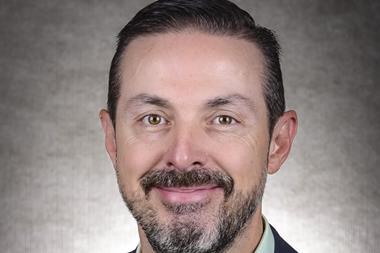Depression is a common illness, but few employers know how to spot employees who are affected – or how to deal with them. Jessica McCallin writes
It is the illness that dares not speak its name. Depression, like any mental illness, evokes fear and ignorance among the general populace. Few will admit to suffering from it, scared that they will be misunderstood, or accused of being weak and attention seeking.
Yet an estimated one in four people will suffer from depression at some point in their lives, and the illness is on the increase. According to a 2001 World Health Organisation study, depression will be the second most debilitating illness in the world in 2020, second only to heart disease. Its growing incidence has huge implications for business.
Depressed employees will not be as productive as their undepressed colleagues. Many will require time off work; the most severe sufferers may possibly need several months off. If treatment is covered by company health insurance, it is likely to be costly, as there is no magic pill to cure depression.
Depression is already believed to cost US companies between $40bn and $70bn a year in lost productivity and medical expenditure. Mind, a UK mental health charity, says 40 million working days each year are lost to it.
To risk managers, depression poses a myriad of problems. Just recognising it in an employee can be problematic enough. The symptoms can mirror those of other common illnesses, and employees are likely to want to hide the fact that they are ill. It is also difficult to know what to do about depression in an employee.
Ron Bracey, a consultant clinical psychologist who helps companies with their depressed employees explains: "The impact on the company will depend to some extent on what the depressed employee's role is. Someone whose job is stacking shelves might be able to make it through the day, going through the motions and doing the job more or less as normal. But, at the other end of the scale, a strategic employee, a creative driver behind the company, might find it impossible to fulfil their responsibilities when they are depressed. The cost to the company is significantly higher if the depressed employee is a crucial member of staff."
Do not assume that high-flying staff members and members of the board of directors are not the 'type' to succumb to depression. Consider some of the world's more famous depressives. Winston Churchill was a sufferer, calling his depression his black dog. American Presidents Abraham Lincoln and Lyndon B Johnson were others. Beethoven, Charles Dickens, Leo Tolstoy, Virginia Woolf, Hans Christian Anderson, Ernest Hemingway, Marilyn Monroe, Laurence Olivier, and the founder of CNN and current chair of AOL Time Warner, Ted Turner.... the list goes on. There is, in short, no correlation between depression and lack of ability. Some of the most talented people in history were periodically crippled by depression. Companies which hire and fire depending on whether someone is a sufferer could be losing valuable manpower.
"As with all illnesses, early intervention is best," says David Gamble, executive director of AIRMIC. "Line managers should be aware of the symptoms and should support employees if they succumb, but there is always a question mark over what companies can actually do."
Responsibility
No one really knows what causes depression, although doctors agree that there is rarely a sole cause. Its current increase has been ascribed to a combination of better diagnosis and the increasingly fragmented, insecure and stressful lives we lead, cut off from family, friends and social support networks. The unstable job market does not help. But these are not the responsibility of individual companies, so should individual companies be held responsible for employee depression?
Well, yes and no. While work is unlikely to be the only thing making an employee depressed, it might not be helping, and some work environments help less than others. Stressful, bullying work environments can compound depression and should be avoided. Constant change is also harder for some people to internalise than others.
"Good risk management dictates that you look after all your employees and try to reduce stress for all of them," continues Gamble. "Good management will look out for, and manage, the stress of all its employees. Companies which do this already will be better able to deal with depressed members of staff."
Companies also need to decide whether or not depression will be covered by the company health insurance. Depression is not a cheap illness, requiring time off work, drugs and talking therapy Average recovery periods vary between four and eight months.
Some companies might choose to subscribe to an employee assistance programme, which gives employees confidential access to counsellors and therapists. This can be offered as a positive, proactive employee perk, possibly linked to health insurance, or can be offered to give the company an element of protection – providing proof, in the event of employee action, that it has thought about depression, and offers support. There are already signs that depression could soon enter the realm of lawsuits and company tribunals. "It is just a matter of time before a personal injury case puts forward the argument that someone's job made them depressed," says Bracey.
However, since depression is so multi-faceted – there is no one single cause – it is unlikely that many court judgments will blame a company exclusively for a person's depression. The main risk to companies lies in the fact that, at any given time, one in four of their employees, could be suffering from a disease which hampers their work and therefore the company's performance. Companies who find a way to spot and support depressed employees will be ahead of the game in the years to come and they, like society as a whole, strive to catch up with and understand the illness.
Jessica McCallin is a freelance journalist
Depression: what is it and what causes it?
Classic symptoms are:
Depression is notoriously difficult to define or pin down, but a working definition would have it as a whole body illness that affects a person's physical heath as well as how he or she feels, thinks and behaves towards others.
There are two main types of depression, manic or bipolar, and unipolar. Manic depressives will go through extreme highs, when they are full of energy and optimism, before they sink into depression. Unipolar sufferers will not experience this up. Unipolar is much more common and is the focus of this article.
Sufferers are likely to have problems eating, sleeping and working and will have a persistent depressed mood characterised by feelings of despair, sadness and emptiness. Symptoms will, however, vary both in type and degree.
Some therapists split depression into reactive and clinical types; reactive being a depression which follows a major life change or trauma which might explain it, and clinical depression, which has no obvious trigger and may recur periodically throughout life. Treatment and recovery times vary massively from person to person, and are dependent on the sufferer's unique physical, psychological and social makeup.
A combination of drugs and talking therapy is the ideal first course of treatment, producing an 80% recovery rate within six months, but nearly two-thirds of sufferers do not get adequate treatment, or do not follow it properly. Certain drugs will not work on some people and a period of experimentation, until the right drug or drugs are found, is common. The same goes for talking therapy. There is a huge amount of variety in the type of talking therapy and the quality of the therapists. In more extreme cases of major depressive breakdown, sufferers may need electro-convulsive therapy and hospitalisation. But even then, sufferers usually make a full recovery within eight months.
Depression and Work
A survey published last year by the UK charity Depression Alliance showed that many people with depression who had sought help from their employers were still being made ill through unrealistic workloads and bad management. The results suggested that employers can no longer ignore a condition that is as dangerous as cancer and heart disease.
While many of those surveyed had told their employers about their illness, a substantial number had received little or no support from managers and were struggling under unrealistic workloads. Over a quarter of people interviewed (29%) felt their depression was caused or made worse by unrealistic workloads, with 35% of people blaming bad management.
When asked whether workers felt they were always offered the support they needed, only 11% were able to say yes. However, the results showed that many more people were finding it easier to inform their colleagues and managers of their illness, with only 1.5% of interviewees declaring that they had not disclosed their illness to anyone. However, most were only prompted to tell their employer of their illness after they had been unwell for a period.
With people now being more open about their condition, Depression Alliance is calling for the Government and employers to act quickly and responsibly in supporting workers and those who are unable to work through depression. It offers a training programme for employers and employees to help them better cope with depression and stress in the workplace. The message is that early intervention will save time, money and lives.
The Mental Wealth –– Depression and Work survey was conducted throughout February 2002 on 200 people.



















